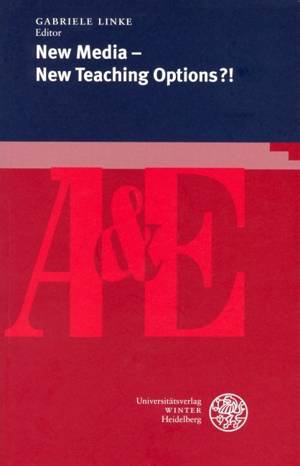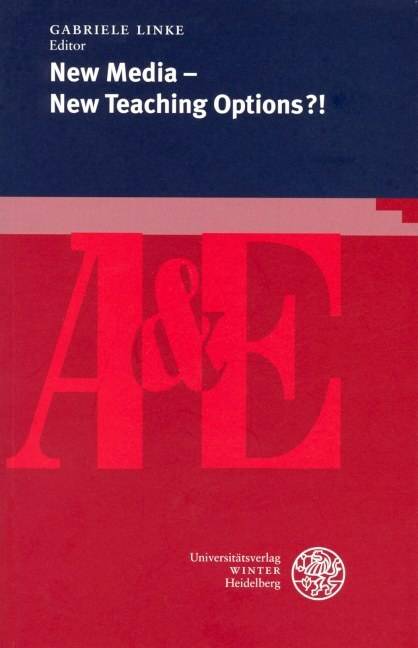
- Afhalen na 1 uur in een winkel met voorraad
- Gratis thuislevering in België vanaf € 30
- Ruim aanbod met 7 miljoen producten
- Afhalen na 1 uur in een winkel met voorraad
- Gratis thuislevering in België vanaf € 30
- Ruim aanbod met 7 miljoen producten
Zoeken
New Media - New Teaching Options?!
€ 24,95
+ 49 punten
Omschrijving
Time and again throughout the second half of the 20th century, technical innovations in communications have promised more efficient ways of foreign language teaching and learning. Time and again, these media have been resisted by some teachers and welcomed enthusiastically by others, until each medium's specific strengths emerged more clearly in the course of classroom use. Contributors to this volume report their experiences, submit proposals and survey the state of affairs with regard to the use of 'new' electronic media in secondary and tertiary education. Some contributions cover more traditional media genres such as film, soap opera and music video clip while others - the majority - deal with the diverse uses of the Internet as a source of information and means of communication. Here, themes range from intercultural learning via Internet and virtual intercultural projects through the description of the development of programmes for information literacy and online courses to classroom uses of electronic newspapers, electronic platforms and scenario presentations with the help of new media.
Specificaties
Betrokkenen
- Uitgeverij:
Inhoud
- Aantal bladzijden:
- 278
- Taal:
- Engels
- Reeks:
- Reeksnummer:
- nr. 68
Eigenschappen
- Productcode (EAN):
- 9783825352066
- Verschijningsdatum:
- 7/01/2006
- Uitvoering:
- Paperback
- Formaat:
- Trade paperback (VS)
- Afmetingen:
- 134 mm x 210 mm
- Gewicht:
- 3728 g

Alleen bij Standaard Boekhandel
+ 49 punten op je klantenkaart van Standaard Boekhandel
Beoordelingen
We publiceren alleen reviews die voldoen aan de voorwaarden voor reviews. Bekijk onze voorwaarden voor reviews.










